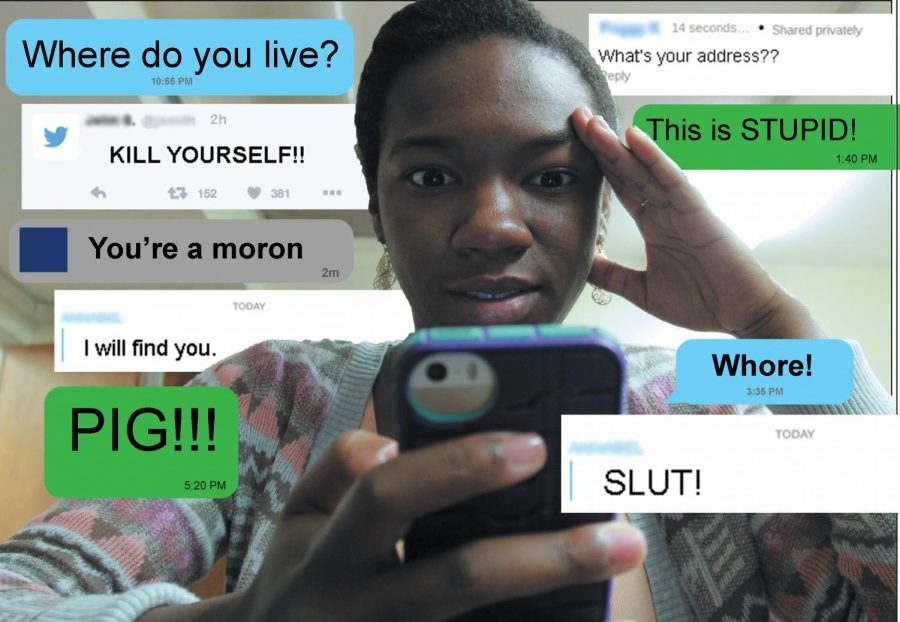Survey finds students talked and bullied via social media
November 5, 2015
While technology and social media are important for daily communication, some take advantage of this resource and use it to cause harm.
The final brief of the Campus Climate Survey showed most UNA students who experienced stalking or bullying in the past year experienced it through social media.
Based on the results, 36 percent of students at UNA experienced stalking and bullying last year.
Of the 978 students who took the survey, 289 said they experienced stalking or bullying last year through unwanted messages via Facebook, Twitter, Snapchat or other social media, according to the survey results.
“Based on the way our society is going with social media and the Internet, I was not surprised at these results,” said Title IX Coordinator Tammy Jacques. “There is a real need for education and prevention education about respect for others when it comes to saying appropriate things on social media.”
People use social media around the world to connect with friends and family. The most popular social network is Facebook with over 1.5 billion people actively using the site each month.
The second most common act of stalking or bullying was unwanted comments or pictures on a social networking wall. About 170 students indicated they experienced this occurrence in the past year, according to the survey results.
Senior Jovonne Baker said a guy stalked her on Myspace. “It started as innocent flirting,” she said. “Then, if I ever logged out, he would message me saying, ‘where did you go?’”
She deleted her account and has not had any problems since, she said.
Jacques said the survey did not ask respondents to indicate the nature of the unwanted contact.
“It is still a concern,” she said. “People are feeling uncomfortable. All of this contact is related to uncomfortable moments between individuals.”
Students should consider what they are saying before they press send, Jacques said.
Once something is on the Internet, it is there for anyone to see.
“When you post something on social media, it’s out there,” Jacques said. “If you are bullying through social media, it doesn’t go away.”
Many sources on campus like Career Planning and Development frequently share information about professionalism on social media, but Jacques said she thinks students need more education about appropriate contact and respecting others through social media.
“Some people go to social media to air their problems instead of talking it out with a friend,” she said. “People need to know what it means to respect others’ personal boundaries.”
She said employers often look for more than just inappropriate posts on potential employees’ social media accounts. The way that person interacts with others on social media could affect his or her job possibilities, too.
“Companies want to get employees who can communicate well and be team players and handle conflict with civility,” she said. “When we see this behavior, it has the possibility of jeopardizing job opportunities.”
While appropriate behavior is important, Jacques said she thinks the issue goes deeper than behavior and communication.
“The deeper issue is how to get to the heart of students about respecting one another,” she said. “It’s OK to have conflict, but you have to have dignity and respect.”
Senior Allison Lawrence said inappropriate comments online from someone she does not know do not bother her.
“Half of the time, they don’t know who you are online,” she said. “If you know the person, that’s an issue because you might have to interact with that person regularly.”
Jacques said the university is considering forming focus groups to address stalking and bullying. She said this is often the best way to get feedback from students about their concerns.
The university will conduct another Student Campus Climate Survey during fall 2016, she said. The university will conduct these surveys every other year.
She said the Title IX board decided to do the survey every other year so they could analyze the results and implement education on the off-year.
Giving a year in-between surveys gives the board time to see if the changes and education implemented made an impact, she said.












